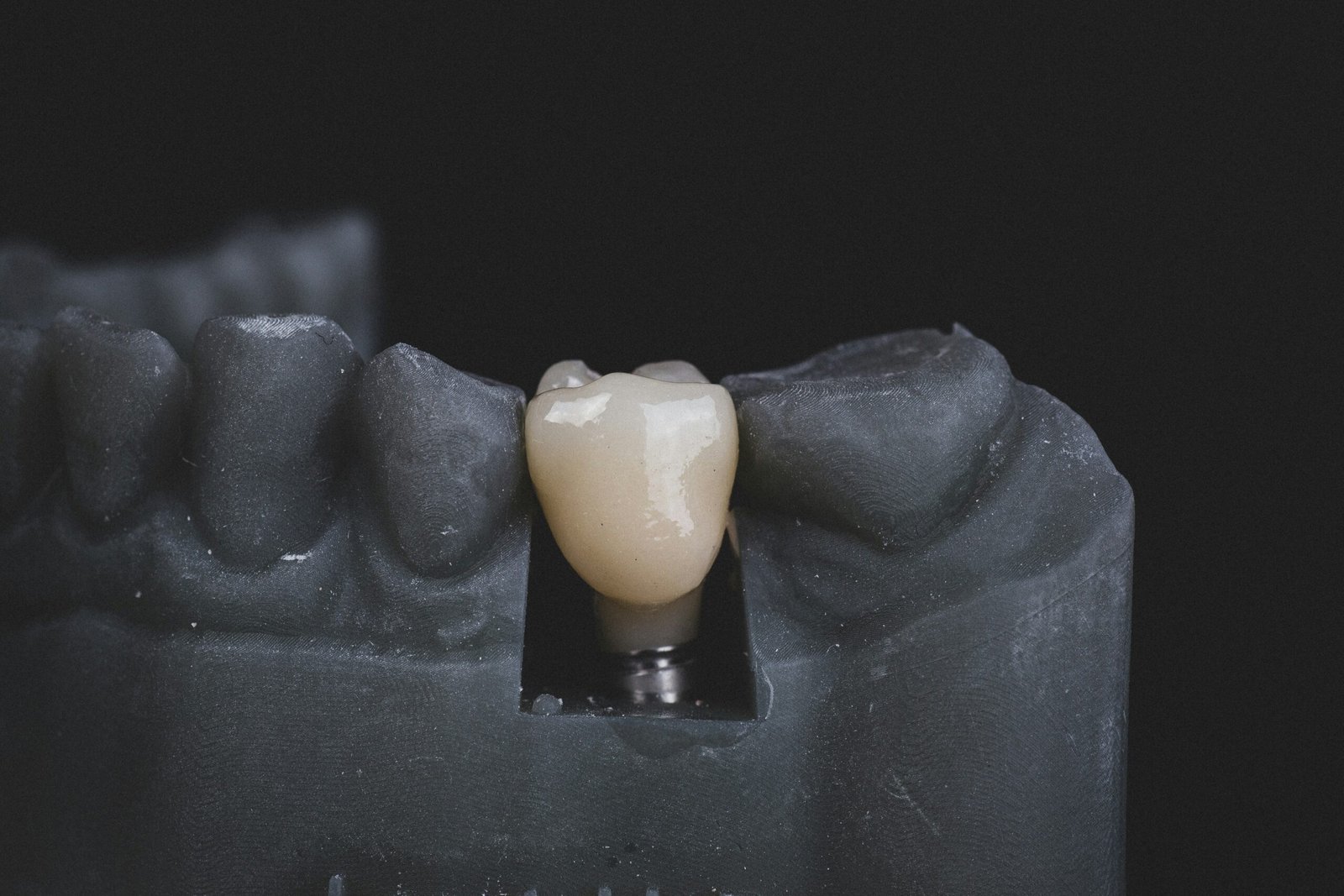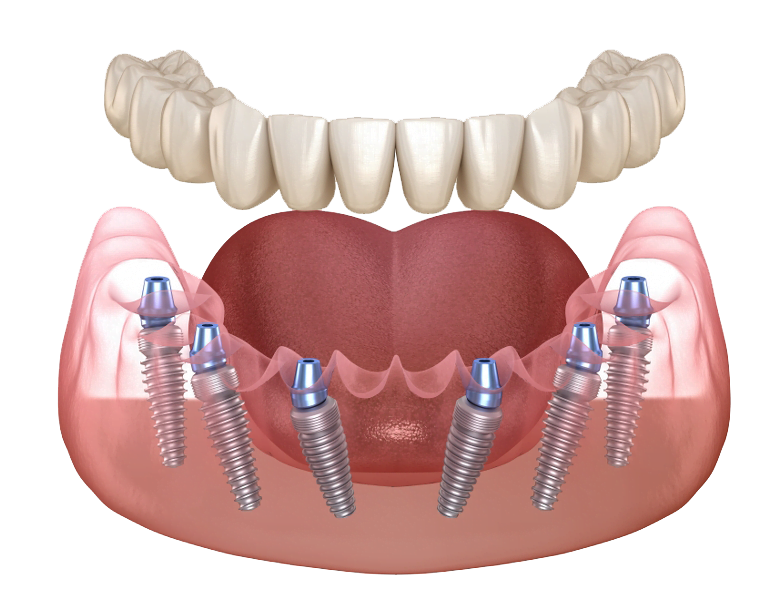Understanding Diabetes and Its Impact on Dental Health
Diabetes mellitus is a chronic condition that affects how the body processes glucose, leading to high blood sugar levels and a range of health complications. One critical area affected by diabetes is oral health. Research indicates that individuals with diabetes are at a heightened risk for various dental issues, including periodontal disease, tooth decay, and delayed healing post dental procedures. This susceptibility is primarily attributed to the body’s impaired immune response and compromised ability to heal, which complicates recovery from dental surgeries, such as implants.
Statistics reveal that approximately 22% of adults with diabetes suffer from gingivitis, a precursor to more severe periodontal disease. Moreover, studies have shown that diabetics are twice as likely to develop periodontal diseases compared to non-diabetics. This correlation underscores the need for enhanced oral care and diligent monitoring for individuals managing diabetes. The relationship between diabetes and oral health is bidirectional; while diabetes can exacerbate dental issues, oral diseases can also make it more difficult to control blood sugar levels, thus contributing to complications in diabetes management.
Additionally, complications that arise during dental procedures can be significant for diabetic patients. They may experience longer healing times due to the body’s decreased ability to regenerate tissues and increased risk of infection. The circulatory issues often present in persons with diabetes further impede proper healing, as blood flow is compromised. Consequently, dental professionals should be acutely aware of these factors before performing dental implants or other surgical procedures on diabetic patients, ensuring comprehensive preoperative evaluations and tailored treatment plans to mitigate potential risks.
The Importance of Pre-Procedure Consultations
Pre-procedure consultations play a critical role in ensuring the safety and success of dental implant procedures, particularly for diabetic patients. A comprehensive consultation helps identify individual health needs, paving the way for effective treatment planning. This is particularly important in the context of diabetes management, where varying degrees of glycemic control can drastically influence surgical outcomes.
During the initial consultation, dental professionals must conduct a thorough review of the patient’s medical history. This includes an assessment of diabetes control, previous complications, and any comorbidities that may affect the procedure. Understanding a patient’s current medications is equally essential, as certain drugs may interfere with healing or heighten the risk of complications. For instance, anticoagulants or medications affecting blood sugar levels can significantly influence surgical decisions. The healthcare team should also be informed about any recent changes in medication or health status, as these can have direct implications for the dental procedure.
Additionally, anesthetic considerations must be tailored to accommodate the specific needs of diabetic patients. For example, the choice of anesthesia may depend on the patient’s cardiovascular health, which is often compromised in individuals with diabetes. Coordinating care among various healthcare providers—including endocrinologists and anesthesiologists—ensures a multidisciplinary approach that optimizes patient safety. This collaborative effort aims to address not only the dental aspects of the procedure but also the broader health context of the patient, facilitating a smoother transition through care. Such thorough pre-procedure evaluations are indispensable in setting the foundation for a successful dental implant experience in patients managing diabetes.
Optimizing Blood Sugar Levels Before the Procedure
Managing blood sugar levels is crucial for diabetic patients who are preparing for a dental implant procedure. Elevations in blood glucose can increase the risk of complications during and after surgery, making it imperative to establish optimal control well ahead of the appointment.
One of the foundational strategies for optimizing blood sugar is adopting a suitable diet. A balanced meal plan that includes high-fiber foods, lean proteins, and healthy fats can help stabilize glucose levels. It is also advisable to minimize the intake of refined carbohydrates and sugary snacks. Regular meal timing contributes to steady blood sugar patterns, allowing patients to prepare their bodies better for the upcoming dental procedure.
Alongside dietary changes, medication adherence plays an essential role in blood glucose management. Patients should follow their prescribed medication regimens rigorously, whether they are taking insulin or oral hypoglycemic agents. Consulting with healthcare providers ahead of the dental appointment can help ensure that any necessary adjustments are made to the medication schedule to accommodate the procedure. This collaboration is vital, as it allows healthcare providers to provide tailored advice based on the patient’s unique health status.
Furthermore, regular testing of blood sugar levels can offer insights into day-to-day management and help in detecting any significant fluctuations. It is advisable to establish a routine for testing several days prior to the procedure, allowing for timely corrections if levels are not within the target range. This proactive approach to monitoring not only enhances overall health but also contributes to a smoother dental implant process.
The Role of Medications and Anesthesia in Diabetic Patients
When contemplating dental implant procedures for diabetic patients, the consideration of medications and anesthesia is crucial. In these scenarios, the selection of anesthetic agents and the management of existing diabetes medications must be approached with caution. Diabetic patients often encounter unique challenges during surgical interventions, which can adversely affect their healing process and overall outcomes.
Common medications that may be administered during dental implant procedures include sedatives, local anesthetics, and analgesics. Local anesthetics, such as lidocaine, are typically favored for pain management; however, clinicians must carefully assess their usage in diabetic patients, especially those with cardiovascular complications. Additionally, the timing and dosage of insulin and oral hypoglycemic agents should be optimized to prevent fluctuations in blood glucose levels, which can be exacerbated by stress and surgical trauma. Coordination between the dentist and the patient’s physician is essential to optimize diabetes management during the procedure.
Anesthesia choices are similarly significant in this context. While general anesthesia may be used in some instances, it poses additional risks for diabetics, such as increased chances of post-operative complications and altered metabolic responses. Alternatively, conscious sedation or monitored anesthesia care often present fewer risks and allow for better stabilization of blood sugar levels. The healthcare team must be vigilant in monitoring the patient’s vital signs and glucose levels throughout the procedure.
Moreover, preoperative patient education plays a vital role in minimizing risks. Patients should be instructed to maintain their medication regimen during dental visits and to monitor their blood sugar levels to prevent hyperglycemia or hypoglycemia. Ultimately, by considering the implications of medications and anesthesia, dental professionals can ensure safer and more effective implant outcomes for diabetic patients.
Planning the Surgical Procedure: Steps and Precautions
Preparing a diabetic patient for a dental implant procedure necessitates a carefully structured surgical plan to address the unique challenges posed by diabetes. Initially, a comprehensive evaluation of the patient’s medical history, including blood glucose levels and any related complications, is essential. Collaborating with the patient’s primary healthcare provider can provide invaluable insights on managing their diabetes effectively before and after the surgery.
The first step in the procedure is the pre-surgical consultation, during which the dental professional will explain the process, expected outcomes, and potential risks. It is imperative to ensure that the patient’s blood sugar levels are well-controlled prior to the procedure. Generally, maintaining glucose levels within a target range can significantly reduce the risk of complications during and following the dental implant surgery.
On the day of the surgical procedure, the patient should ideally fast if directed by the healthcare provider. This may contribute to more stable blood sugar levels. The surgical environment must be equipped with emergency protocols, including the availability of glucose solutions or emergency kits, to address any unexpected hypo- or hyperglycemic events.
During the implant placement, special care should be taken to minimize stress and anxiety, as these factors can affect blood sugar control. The dental team should also consider using sedation options that are compatible with diabetic patients. Once the implants have been placed, post-operative care instructions should emphasize the importance of regular monitoring of glucose levels, adhering to prescribed medications, and attending follow-up appointments, as these steps are vital in preventing infection and promoting optimal healing.
By following these meticulous steps and precautions, dental professionals can significantly enhance the safety and success of the dental implant procedure for diabetic patients, ultimately contributing to better health outcomes.
Post-Operative Care and Recovery for Diabetic Patients
Post-operative care for diabetic patients undergoing a dental implant procedure is critical in ensuring a smooth recovery and optimal healing. Given their unique health concerns, special attention must be paid to pain management, oral hygiene practices, dietary recommendations, and blood sugar monitoring.
Pain management is an essential component of post-operative recovery. Dentists may prescribe analgesics to alleviate discomfort, and it is crucial for patients to follow the prescribed dosage. Additionally, diabetics should avoid non-steroidal anti-inflammatory drugs (NSAIDs) without consulting their healthcare provider, as these can potentially interfere with blood glucose levels. Applying a cold compress to the affected area can also help reduce swelling and manage pain.
Maintaining impeccable oral hygiene is vital following dental implant surgery. Patients should be careful while brushing around the surgical site to avoid disrupting the healing process. A soft-bristle toothbrush is usually recommended, and the use of an antiseptic mouthwash can help reduce the risk of infection. Regularly rinsing gently with warm salt water can also aid in keeping the mouth clean and free from complications.
Dietary recommendations play a significant role in recovery. It is advisable for diabetic patients to consume soft foods and steer clear of hard or crunchy items that could disrupt the implant. Balancing meals with appropriate portions of carbohydrates, proteins, and healthy fats is essential for stable blood sugar levels. Staying hydrated and avoiding excessive caffeine or sugary drinks can further contribute to a successful recovery.
Monitoring blood sugar levels is crucial, especially in the post-operative phase. Patients should frequently check their glucose levels and report any abnormalities to their healthcare provider. Follow-up appointments with the dentist are necessary to evaluate the progress of healing and address any concerns.
Lastly, patients should be educated about signs requiring immediate attention, such as excessive bleeding, severe pain, or signs of infection like swelling and fever. Taking these precautions can significantly enhance the recovery experience for diabetic patients post-dental implant.
Recognizing and Managing Complications
Dental implant procedures in diabetic patients necessitate careful consideration of potential complications that may arise during the healing process. Often, these complications can be attributed to the patient’s underlying condition, which affects the body’s ability to heal and manage infections effectively. Key issues that may present include infections, delayed healing, and inflammation. It is important for healthcare professionals and patients alike to understand these complications and their management.
Infections are a primary concern following dental implant surgery, particularly in diabetic patients whose immune systems may be compromised. Signs of infection may include increased redness, swelling, and discharge at the implant site. Proper oral hygiene is essential, and patients should be instructed to maintain meticulous care of the surgical area. Should an infection be suspected, timely intervention with antibiotics and potential drainage of the area may be necessary to prevent further complications.
Delayed healing is another significant risk for diabetic patients undergoing dental implants. Factors such as blood sugar levels and the overall health status of the patient play a critical role in the healing timeline. Maintaining optimal blood glucose levels pre- and post-surgery can enhance healing, making it vital for diabetic patients to monitor their blood sugar closely. If healing appears stalled or if there are unusual pain levels, it is essential to consult the dental practitioner promptly.
Inflammation can also complicate the recovery process. Excessive inflammation may result from an immune response or may be sparked by an infection. This can hinder the integration of the implant with the bone, leading to implant failure. Patients should be educated on recognizing symptoms of excessive swelling and should seek out professional guidance if these symptoms arise. Overall, with appropriate awareness and management, diabetic patients can navigate any complications related to dental implant procedures more effectively.
Long-Term Care and Maintenance for Dental Implants in Diabetic Patients
Ensuring the longevity of dental implants in diabetic patients necessitates a structured approach to long-term care and maintenance. One of the critical aspects of this process is scheduling regular dental check-ups. Dentists will perform comprehensive assessments to evaluate the condition of the implants and surrounding tissues, ensuring that any potential complications are addressed promptly. These assessments may involve X-rays or periodontal evaluations to monitor the health of the gums and bones surrounding the implants.
Alongside these dental appointments, ongoing monitoring of diabetes is crucial. Poorly controlled blood sugar levels can significantly affect implant success and overall oral health. Diabetic patients are encouraged to maintain their diabetes management regimen, which includes regular blood sugar testing, dietary adherence, and medication compliance. A well-managed diabetic state not only reduces the risk of complications but also enhances healing and recovery after dental procedures.
Lifestyle changes can also play a pivotal role in the success of dental implants. Maintaining a balanced diet rich in essential nutrients supports oral health and helps control blood sugar levels. Patients should focus on foods that promote healing, such as fruits, vegetables, whole grains, and lean proteins. Regular physical activity is another essential factor; exercise contributes to better blood sugar control and improves overall health, which can have a beneficial effect on the longevity of dental implants.
Furthermore, implementing a stringent oral hygiene routine is indispensable. Brushing and flossing twice daily, along with using antimicrobial mouthwash, can significantly reduce the risk of infections around implants. Regular consultations with dental hygienists can also be beneficial to ensure that patients are following the best practices in oral care.
In conclusion, the long-term care of dental implants in diabetic patients involves a comprehensive approach that includes regular dental check-ups, meticulous diabetes management, lifestyle modifications, and diligent oral hygiene practices. By investing time and effort into these areas, patients can significantly enhance the outcomes and longevity of their dental implants.
In Conclusion
Preparing for dental implants requires careful consideration, particularly for diabetic patients. The complexities associated with diabetes can influence healing and overall success rates of dental procedures, making it essential for both dental and medical professionals to collaborate closely. Effective management of diabetes, including stable blood glucose levels, plays a pivotal role in the surgical outcomes for these patients.
Key takeaways from this discussion underscore the importance of individualized treatment plans. A thorough preoperative assessment that involves not only dental evaluations but also a review of the diabetic patient’s general health profile helps in identifying potential risks. It is vital for dental implant teams to communicate with the patient’s endocrinologist or healthcare provider, as effective diabetes management significantly contributes to the healing process and minimizes potential complications.
Moreover, post-operative care for diabetic patients requires an increased emphasis on monitoring blood sugar levels, as fluctuations can impair healing and increase the risk of infections. Patients must also be guided on maintaining oral hygiene post-surgery to support successful implant integration. Continuous education about lifestyle choices, including diet and physical activity, holds immense value in managing diabetes and ensuring a smooth dental implant journey.
In summary, the path to successful dental implants for diabetic patients is paved with precise planning, effective interprofessional collaboration, and a commitment to patient education. By addressing the unique challenges presented by diabetes, healthcare providers can improve the likelihood of a positive outcome for these patients, ensuring that they enjoy the benefits of dental implants while maintaining their overall health.









